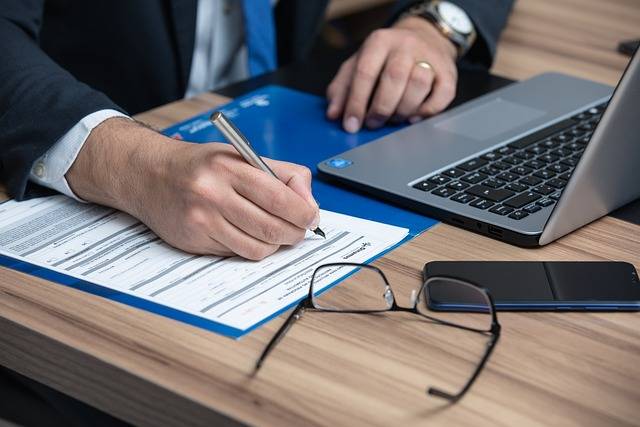A Comprehensive Guide: What You Need to Know About Signing an Apartment Lease Agreement
Introduction
Signing a lease on a Apartment is an important step in securing your new home; nevertheless, it can also cause a lot of stress. Although lease agreements can range widely in intricacy and scope, they must include some components to safeguard the interests of both the tenant and the landlord. In this in-depth tutorial, we will discuss the most important components of Apartment Lease Agreement, with the goal of assisting you in navigating the process with self-assurance.
I. Comprehending the Institutional Structure
To understand Apartment Lease Agreement, it is necessary to know that state and municipal regulations control the rights of both tenants and landlords. These regulations cover a variety of topics, including setting maximum amounts for security deposits, outlining processes for evictions, and specifying the termination of leases. Familiarize yourself with these laws so that you can ensure that your lease meets the requirements of the law.
II. Consider Important Aspects When Signing an Apartment Lease Agreement
A. Names of Each and Every Tenant
Including the names of every adult who resides in the flat on the lease is imperative. If the Apartment Lease Agreement is solely in your name, you have the potential to be fully accountable for any damages that occur.
B. The Real Estate Specifics in Apartment Lease Agreement
Ensure that you clearly state the actual address of your new flat, including the unit number, in the lease. Confirming this information is important to avoid any misunderstandings regarding the rental property you are considering.
C. Rent
The lease should outline the amount of rent due every month. If this information is missing, you should promptly request its inclusion to avoid any misunderstanding.
D. Length of the Apartment Lease Agreement and Conditions for Renewal
Ensure that you are aware of the beginning and ending dates of your lease. Ensure that you are aware of everything that will occur when your lease term ends, including the expenses of transitioning to a month-to-month agreement and the consequences for terminating the lease.
E. Timetable for the Payment of Rent
You should pay your monthly rent on the date specified in the lease, and you should also be aware of the consequences of paying late and any additional fees that may apply.
III. Additional Considerations Regarding the Lease
A. Policies Regarding Visitors
Leases can place limitations on the number of guests or the length of time they can stay. Be aware of these policies to avoid breaking any of them.
B. Parking Regulations
Familiarize yourself with the parking regulations, including the allocated areas and the associated fees. Make sure you define the terms of your parking arrangement clearly if they are included in your lease.
C. Renting Out Space
Determine if subletting is allowed and, if it is, what the terms are. If you intend to sublease your flat, you must adhere to the terms of your lease.
D. Making Adjustments and Taking Preventative Measures
Please examine the sections of the lease that address requests for repairs and identify the party responsible for maintenance. Understand how to start and finish the repairs.
E. Renters Need Homeowners Insurance
A number of contracts require tenants to carry renter’s insurance at all times. Learn this requirement inside and out, and ensure that you comply with it.
F. Policies Regarding Pets
If you already own pets or plan to get one in the near future, carefully review the pet restrictions in the lease. Please be aware of any costs, limitations, or additional deposits that are associated with having a pet.
IV. Scrutinizing the Apartment Lease Agreement in Great Detail
A. First, Sign the Signatures
Ensure that all parties concerned, including the renters as well as the landlord or management business, sign the tenancy agreement. Ensure that all terms have been agreed upon by checking for signatures on every page.
B. Take Your Time When You Read Apartment Lease Agreement
Reading every word of the lease slowly and carefully is essential, even if it may be lengthy and difficult to understand. Don’t let anyone pressure you into signing anything before you read and understand the full contract.
Conclusion
Having a positive experience when renting an apartment requires understanding the terms of a rental agreement because signing a Apartment Lease Agreement is a significant commitment that you must make. If you keep your attention focused on the important components and are aware of the additional concerns, you will confidently handle the lease signing procedure. Remember that the legal requirements and lease specifications may vary from one location to another, and always consult a specialist if you have any questions or concerns. Pay close attention to the details to have a worry-free tenancy and ensure the security of your new home .


Air conditioning systems play a critical role in preserving comfort levels within homes and business rooms. They guarantee a controlled temperature, especially during severe weather. However, these systems are prone to breakdowns and need routine upkeep to operate efficiently. This write-up delves into numerous facets of air conditioning solutions, covering fixing, installation, upkeep, and common issues faced by individuals. While do it yourself repairs might seem possible, professional a/c services provide know-how and guarantee of correct repairs. Educated service technicians can identify problems properly and provide comprehensive solutions, guaranteeing the system’s optimal performance.
[url=https://fixmyacnj.com/]air conditioning repair companies[/url]
Air conditioning services include a broad variety of offerings, consisting of repair solutions, setup of brand-new systems, and routine upkeep. Repair solutions entail diagnosing and repairing issues with the a/c unit, while installation solutions focus on setting up new systems. Upkeep and tune-ups intend to enhance the longevity and effectiveness of existing systems. Identifying signs of breakdown is vital for timely repairs. Absence of cold air, irregular fan movement, or uncommon noises from the device are signs that the system needs attention. Neglecting these indicators might result in more considerable and expensive repairs.
[url=https://fixmyacnj.com/]high efficiency furnace[/url]